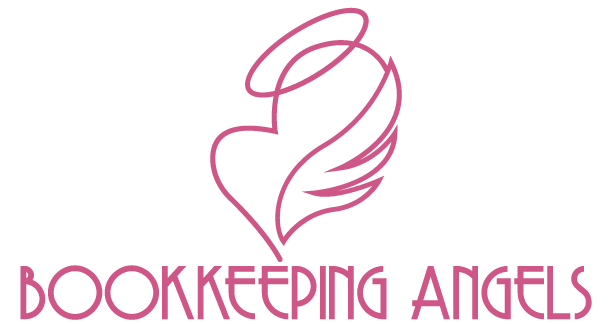A Guide To Finding The Best Bookkeeper in Melbourne
When it comes to running a successful business, keeping your finances in order is just as important as making sales or delivering great service. For many Melbourne business owners, this means partnering with a skilled bookkeeper. But with so many options available, how do you know who’s the right fit for your business?
This guide will walk you through everything you need to know about finding the best bookkeeper in Melbourne, from what services they provide to the questions you should ask before hiring.
Why Bookkeeping Matters for Your Business
Bookkeeping is often underestimated, but it’s the backbone of financial stability. A great bookkeeper can save you time by handling day-to-day transaction recording, payroll, and reconciliations. They keep you compliant with ATO regulations and deadlines, provide clarity around cash flow, expenses, and profitability, and support better decision-making by ensuring you always have accurate financial data at your fingertips.
Without proper bookkeeping, businesses risk running into tax troubles, cash flow issues, or even making decisions based on inaccurate numbers.
Bookkeeper vs Accountant – What’s the Difference?
It’s common to hear the terms “bookkeeper” and “accountant” used interchangeably, but they’re not the same role.
Bookkeepers focus on day-to-day financial transactions like recording sales, processing invoices, managing payroll, and reconciling bank accounts. Accountants usually take a broader view, handling tax returns, financial statements, and providing advice on business structure or long-term strategy.
For most small and medium businesses in Melbourne, a bookkeeper is essential for ongoing support, while accountants step in periodically for tax and higher-level planning.
What to Look For in a Melbourne Bookkeeper
Choosing the right bookkeeper isn’t just about finding someone who knows how to use accounting software. Here are key factors to consider:
1. Qualifications and Registrations
In Australia, anyone providing BAS (Business Activity Statement) services must be a registered BAS agent with the Tax Practitioners Board (TPB). This ensures they meet professional standards and ongoing education requirements.
Look for someone with a Certificate IV in Bookkeeping or Accounting, BAS agent registration if they’ll be lodging your BAS, and ideally membership with professional bodies such as the Institute of Certified Bookkeepers (ICB) or CPA Australia.
2. Industry Experience
A bookkeeper who understands your industry will be far more efficient. For example, hospitality businesses in Melbourne have different payroll and compliance needs compared to tradies or e-commerce stores. Ask about their past clients and industry knowledge.
3. Software Proficiency
Cloud accounting software like Xero, MYOB, and QuickBooks Online dominates the Melbourne market. A skilled bookkeeper should be able to recommend the best platform for your business, set up and customise your accounts, and train your team if needed.
4. Communication Style
You want a bookkeeper who explains things clearly without unnecessary jargon. The best ones act as partners in your business, keeping you updated and answering questions promptly.
5. Scalability and Flexibility
Your bookkeeping needs today may be simple, but as your business grows, you’ll want someone who can handle more complexity. Check if they offer services such as payroll management, inventory tracking, reporting and forecasting, or integration with other business systems like POS, CRM, or e-commerce platforms.
In-House vs Outsourced Bookkeeping
Another key decision is whether to hire an in-house bookkeeper or outsource.
In-house bookkeepers are best for larger businesses with high transaction volumes. They provide immediate, on-site support but come with higher costs due to salary, superannuation, and overheads.
Outsourced bookkeeping is often the smarter choice for small to medium businesses. It’s cost-effective, flexible, and gives you access to specialised skills and broader support. Many Melbourne business owners prefer this option because it offers the best balance of expertise and affordability.
How Much Does a Bookkeeper Cost in Melbourne?
Bookkeeping fees vary depending on experience, services, and business size. On average, hourly rates range from $40 to $90 per hour. Monthly packages typically fall between $200 and $1,000 or more depending on workload. BAS lodgement is often included in packages, otherwise it can cost around $150 to $300 per quarter.
The cheapest option isn’t always the best. A skilled bookkeeper can save you money long-term by preventing mistakes, improving efficiency, and helping you make smarter financial decisions.
Questions to Ask Before Hiring a Bookkeeper
To ensure you’re making the right choice, here are some essential questions:
Are you a registered BAS agent?
Which accounting software do you use and recommend?
Do you have experience in my industry?
How do you handle communication and reporting?
What happens if you’re sick or unavailable?
Can you provide references from other Melbourne businesses?
Red Flags to Watch Out For
Not every bookkeeper will be the right fit. Be cautious if you notice reluctance to show qualifications or BAS registration, poor communication or slow response times, overly cheap pricing that seems too good to be true, or a lack of transparency about their processes.
Where to Find the Best Bookkeepers in Melbourne
If you’re ready to start your search, there are a few reliable avenues. Referrals are one of the best ways, so ask other Melbourne business owners who they use. You can also check professional directories like the TPB register for BAS agents or the Institute of Certified Bookkeepers. Local networking groups such as business chambers or industry associations often have trusted recommendations. Online searches, Google reviews, and LinkedIn can also provide insight into a bookkeeper’s reputation.
Final Thoughts
Finding the best bookkeeper in Melbourne is less about chasing the lowest price and more about finding a trusted partner who understands your business. The right bookkeeper will give you confidence in your numbers, free up your time, and help you make smarter financial decisions.
So whether you’re a sole trader, a growing café in Fitzroy, or a construction business in the eastern suburbs, investing in the right bookkeeper is one of the smartest moves you can make.





